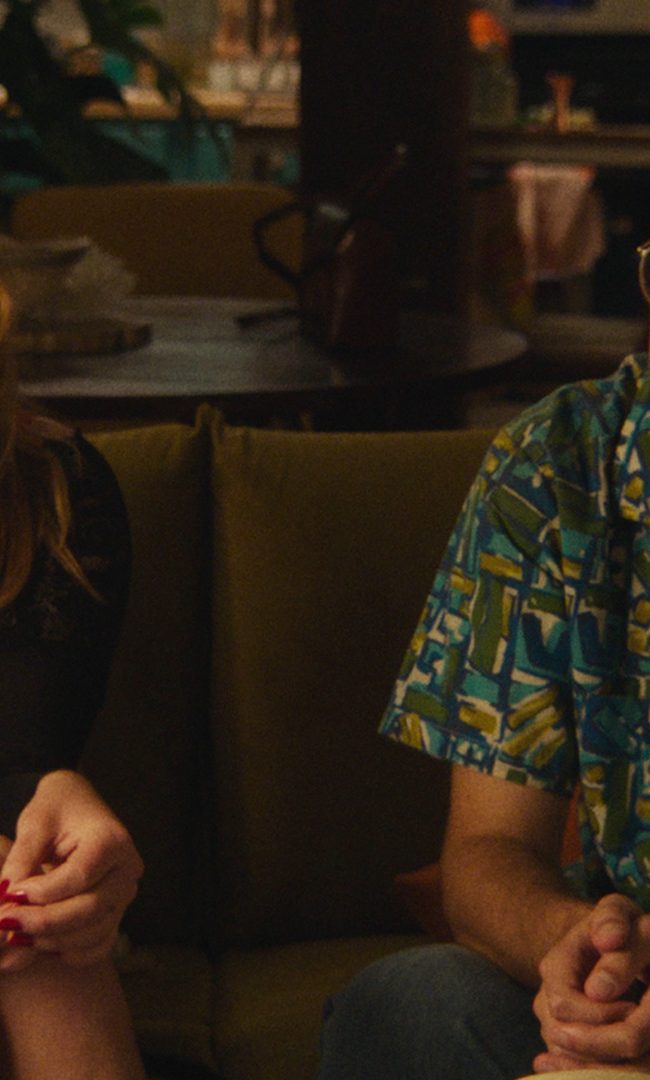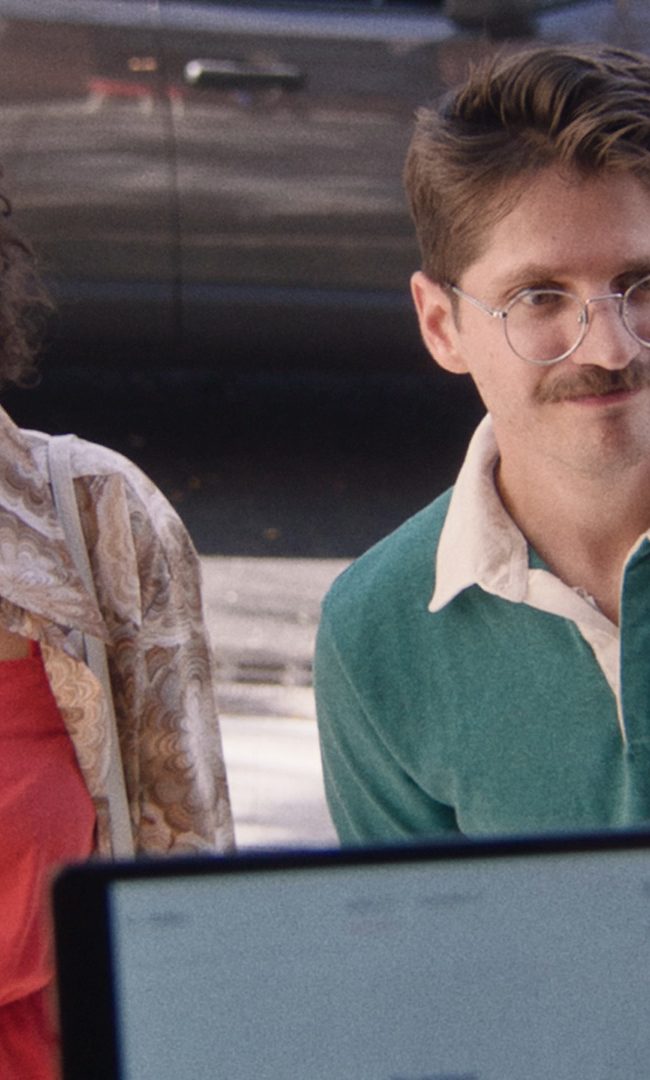A Conversation with Stephen Cone (PRINCESS CYD)
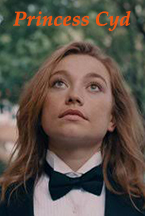 I met with writer/director Stephen Cone on Saturday, May 6, 2017, at the Maryland Film Festival (MdFF). We discussed his most recent feature, Princess Cyd (reviewed here), which had its world premiere at the MdFF (as did his last film, Henry Gamble’s Birthday Party). It tells the story of the sexual and intellectual awakening of the title character as she explores Chicago and the academic circle of Miranda, her celebrated novelist aunt, on a short visit taken as a respite from her depressed father. Beautifully shot and acted, the film is a coming-of-age story unlike any other. Here is a condensed digest of our conversation.
I met with writer/director Stephen Cone on Saturday, May 6, 2017, at the Maryland Film Festival (MdFF). We discussed his most recent feature, Princess Cyd (reviewed here), which had its world premiere at the MdFF (as did his last film, Henry Gamble’s Birthday Party). It tells the story of the sexual and intellectual awakening of the title character as she explores Chicago and the academic circle of Miranda, her celebrated novelist aunt, on a short visit taken as a respite from her depressed father. Beautifully shot and acted, the film is a coming-of-age story unlike any other. Here is a condensed digest of our conversation.
Hammer to Nail: So first of all, I want to compliment you on your cast. They were marvelous, even beyond the two female leads, Rebecca Spence (Miranda) and Jessie Pinnick (Cyd). Can you talk about how you assembled your ensemble, including self-described “punk performer, clown, writer and gender warrior” Malic White as Cyd’s friend Katie, and James Vincent Meredith as Miranda’s friend Anthony?
Stephen Cone: Yeah! It’s one of the most exciting parts of the process for me, but one of the most boring answers, because I have incredible casting directors. I live in Chicago, which is like an acting capital of the world, with Second City and Steppenwolf, and a hugely theatrically rich place. I think people assume that since it’s theatrically rich, the actors are perhaps too theatrically oriented, or too broad, but in fact the large majority of really amazing actors in Chicago can effortlessly switch between the two media and are just really beautiful performers. So, Paskal Rudnicke Casting is the casting agency I use. They’re dear friends. They do big movies that come to town and then, when they love the script, they’ll do something very small, for…a discount. (laughs). So it’s always a thrilling process. They understand the scripts thoroughly; they bring in multiple people.
And some of the quirks of this casting was that Rebecca Spence’s role was written to be older, and so we saw a lot of 55-60-year-old women, and then Rebecca, who’s in her early forties, captured the spirit so wonderfully that I figured, well, why can’t Miranda be a little younger, and in fact I think it complicates the story. Rather than it being a bigger gap, you know? An older woman would be maybe a little more resigned to the rest of her life, but with Miranda in her forties, she has so many different paths she could go down, so maybe it added a layer by doing that. We grayed the front of her just a little, but nothing beyond that. What I think is so amazing about Rebecca’s performance is how she kind of ages herself. She can turn around and play a 35-year-old in a network show, and she somehow aged her spirit by a decade. (laughs). It’s so lived-in and beautiful.
And then Malic…I had somebody else cast, in the beginning, because Malic wasn’t available to come in, and then, as fate would have it, at the last minute we lost the actress and Malic was able to do it.
HtN: And how about Jessie Pinnick?
SC: It’s funny. I teach at Northwestern, and she just graduated a couple years ago, but I never taught her, so she came in through the traditional process, even though we had lots of mutual friends and school connections and stuff like that. And then James Vincent Meredith is a Steppenwolf ensemble member who’s just … he came in and there was simply no other option.
HtN: Right. So you had no pre-existing relationships, knowing these actors ahead of time? It was through your casting agency.
SC: I knew Rebecca vaguely. I knew of Jessie. I had never met Malic, nor James. That’s rare. That’s unusual, because I’ve been in Chicago for 13 years and I know a lot of people. So this cast is unusual in that way. And a lot of the ensemble, in the smaller roles, I have relationships with.
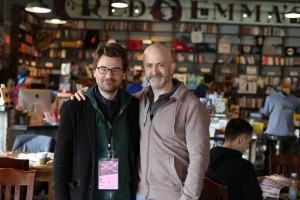
HtN: Got it. So, I particularly liked the way you constructed that circle of intellectuals that Miranda has built around herself. They were lovely, non-judgmental people, written as intelligent, but not pretentious. It felt like something you had maybe experienced, personally. You say you teach at Northwestern. Is this an environment with which you are familiar? Did you grow up with that?
SC: No. No, no! And my other two movies are about repressive evangelical Christianity, so this was my shot to make a movie about liberals and progressives. Henry Gamble was a queer preacher kid’s pool party with just lots of pent-up secrets, and Wise Kids is about church kids coming of age in the South. So this was a flip side of what I’ve been doing. It was very refreshing. So no! But…I grew up in the Church, and there is a sense of community, even when it’s wildly repressive or hypocritical or painful, so maybe in some ways I have experienced that, but in other ways it was an active reaction to do something different from what I’m used to.
HtN: I guess what I mean is that I particularly liked the way you wrote their dialogue. So often I find that when I see, in a film, a group of academics – or intellectuals – talking, that either what they’re saying is not up to this idea of intelligentsia or it’s looking down on those who are not of that group. But this is just a group of people who are having meaningful conversations, and the way you drew those conversations is what I appreciated. It was thoughtful, and I believed that all of the actors: a) knew what they were saying; and b) that they cared about what they were saying.
SC: Great! I love hearing that. Now that I think about it, of course I had valuable relationships with professors at college, and I teach at Northwestern, so I have encountered those people, it’s just not what I necessarily grew up with. But yeah, my college experience was really meaningful to me, and so I imagine that subconsciously, without even trying, I’m bringing in some of those figures.
HtN: Speaking of how you wrote Miranda – and if you can’t tell, she’s the character that really spoke to me – I love her line “It is not a handicap to be one way and not another.” Yes, she’s lonely, in a way, but also…not entirely…and she’s at peace with herself. Again, is she imagined out of thin air, or do you know people like that, at that stage of life?
SC: (laughs) What I said at one of the Q&A’s the other day was that my initial idea came from my fascination with Marilynne Robinson, the author, who’s a liberal and a progressive, but also a Christian, and she writes essays, she writes novels, and is an amazing thinker, and I’m just so in love with her thought. And the movie was literally conceived by my wondering about her physical life. So, that’s sort of where it came from…(laughs)…wondering about Marilynne Robinson’s sex life, and what would happen if someone with an active physical experience came into close proximity with her. The movie is a deliberate pitting of spirit against body, and also finding places where they overlap.
HtN: Because they don’t have to be mutually exclusive.
SC: They don’t! They don’t have to be mutually exclusive at all, whatsoever, and I hope that maybe Miranda will find harmony. And, of course, as Cyd adds thought and free-thinking and literature to her life, she’ll have a more intense, full, sensual experience, as well.
HtN: And one of the nice things about your film is how you show – and you don’t rub our faces in it – how each one has influenced the other a little bit.
SC: In small ways. The visit isn’t a long time. It feels like the whole summer, but it’s only a couple of weeks, and so you can’t do too much transformation, because that doesn’t happen in just two weeks.
HtN: Absolutely. Now, you also make some interesting choices, in terms of camera work, including that outdoor meal between Miranda and Cyd, shot from afar, with Cyd’s back towards us, as the camera slowly pushes in. I thought that was a great choice. What did you and cinematographer Zoe White discuss as your plan to photograph the movie? What was your approach to filming?
SC: It was really instinctual. I gave her some movies to think about, both European films and really accessible 90s movies, like How to Make an American Quilt and Stealing Beauty, which, in my mind, were sort of art films that I loved, from Europe and also really cozy, comfortable blanket films.
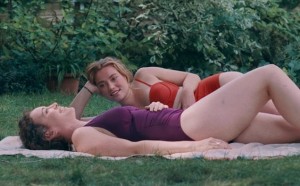
HtN: Stealing Beauty is an interesting choice. That’s the one with Liv Tyler, right? That makes sense as a parallel to this.
SC: That was probably my primary, general influence. But mostly we went with our gut. We discussed the shots. For that one, that you mentioned, in particular, we’d been shooting traditional coverage for three hours, of that scene, so that was kind of an afterthought, and I didn’t know I was going to use just that take. But it’s a nice little…you’re experience the tension between them for the first time, and sort of going into the narrative.
HtN: How interesting, that that was an afterthought, yet is what is now in the movie.
SC: I think it was on our shot list, but yeah, we had three hours of medium close-ups and close-ups and shots of their food, and of them eating…and we never cut the scene. It felt so good. I didn’t even try it with the editor.
HtN: It’s a nice push in. I noticed it.
SC: The zooms were Zoe. Zooms were not something I brought up in the beginning. I wanted to be careful to not make them too self-consciously arty.
HtN: Well, then it would feel like a 1970s film, if you’re overdoing the zooms.
SC: Right. And also, I don’t know if it’s a trend, but a lot of people are doing zooms, these days…(laughs)…so I wanted to make sure not to fall into the trend.
HtN: My own view is that, like anything, a zoom has to be motivated. And if it is, then go to town.
SC: Well, my favorite zooms in the movie are what Zoe’s doing in the reading scene, of Cyd, sort of half there, listening…
HtN: It’s motivated. It makes sense.
SC: Entirely motivated.
HtN: So, you said that this very different from your previous films, which I, sadly, haven’t seen. But I know that Henry Gamble, like Princess Cyd, deals with sexual questioning, etc., so is this a theme you’re going to continue to work with?
SC: Hopefully Cyd is the start of integrating various forms of sexuality into a narrative without it being about the sexuality, because this is less a coming-out story than Henry Gamble and The Wise Kids.
HtN: Right! It’s as much about Miranda’s journey…
SC: It’s as much about Miranda’s journey, and also Cyd’s just liking who she likes, you know? I was telling someone else earlier, it’s a surprise to me that I’m making coming-of-age movies, because I don’t love them. If you told me 10 years ago that I was going to make a series of coming-out/coming-of-age movies, I would have been taken aback, because it’s not what I jump on, to watch, as a viewer. But also, in these movies, as you pointed out, I’m not telling stories about teenagers outside of the context of the middle-aged people around them, so it’s about the contrast between young and old. More than coming out, or sexual discovery, for me it’s this continued kind of nature vs. spirit and body vs. soul, and how do we balance our inner lives with our external lives.
HtN: Well, that’s a good metaphysical topic for any filmmaker to tackle.
SC: Yeah!
HtN: Final question: filmmakers from outside Baltimore seem to like the Maryland Film Festival a lot. This is not your first time here. Why do you think that is? What makes this festival special?
SC: They’ve world-premiered my last two features! I mean, this is the festival that gives my movies life in the spring. It’s been so wonderful to be validated by them. What makes it special is that it’s so beautifully programmed, without paying too much heed to what’s fashionable, or stylish. They’re not trying to program what other programmers are programming. They have really great taste. And they’re very kind people. I think that’s what it is.
HtN: Well, thank you, Stephen. I really enjoyed the film.
SC: Thank you!
– Christopher Llewellyn Reed (@ChrisReedFilm)








